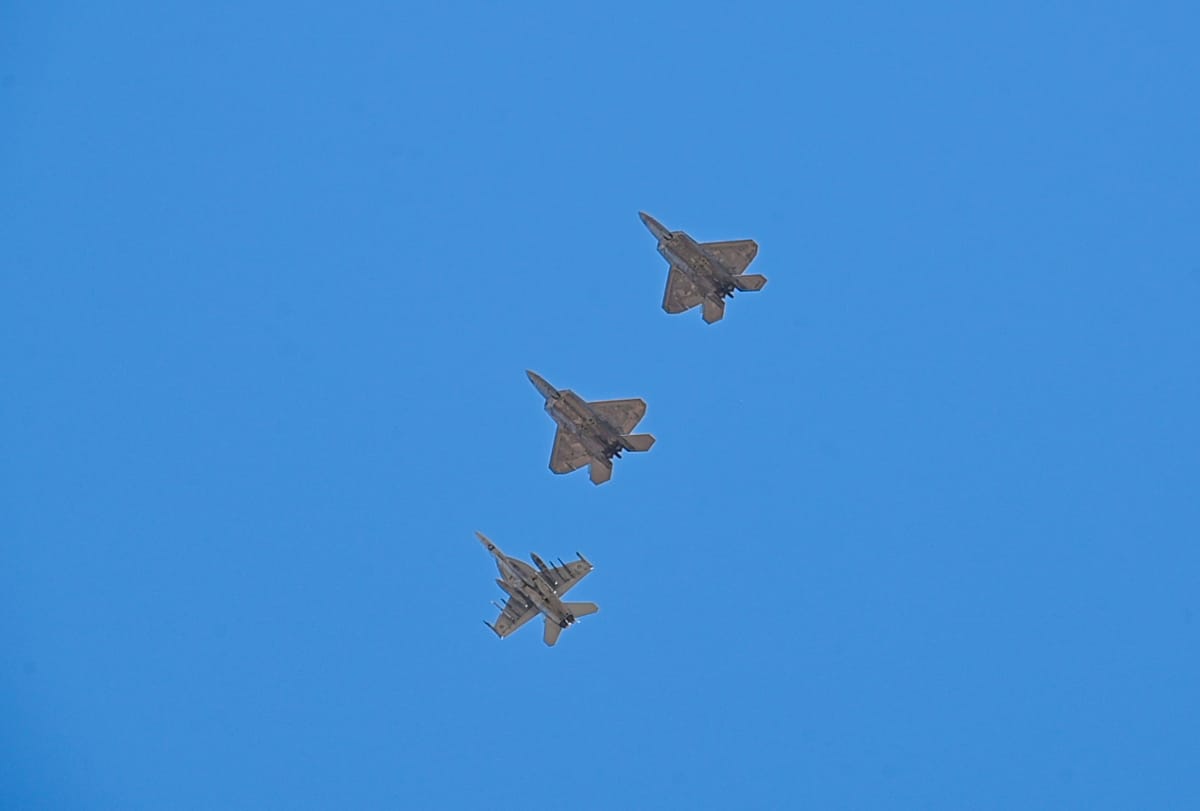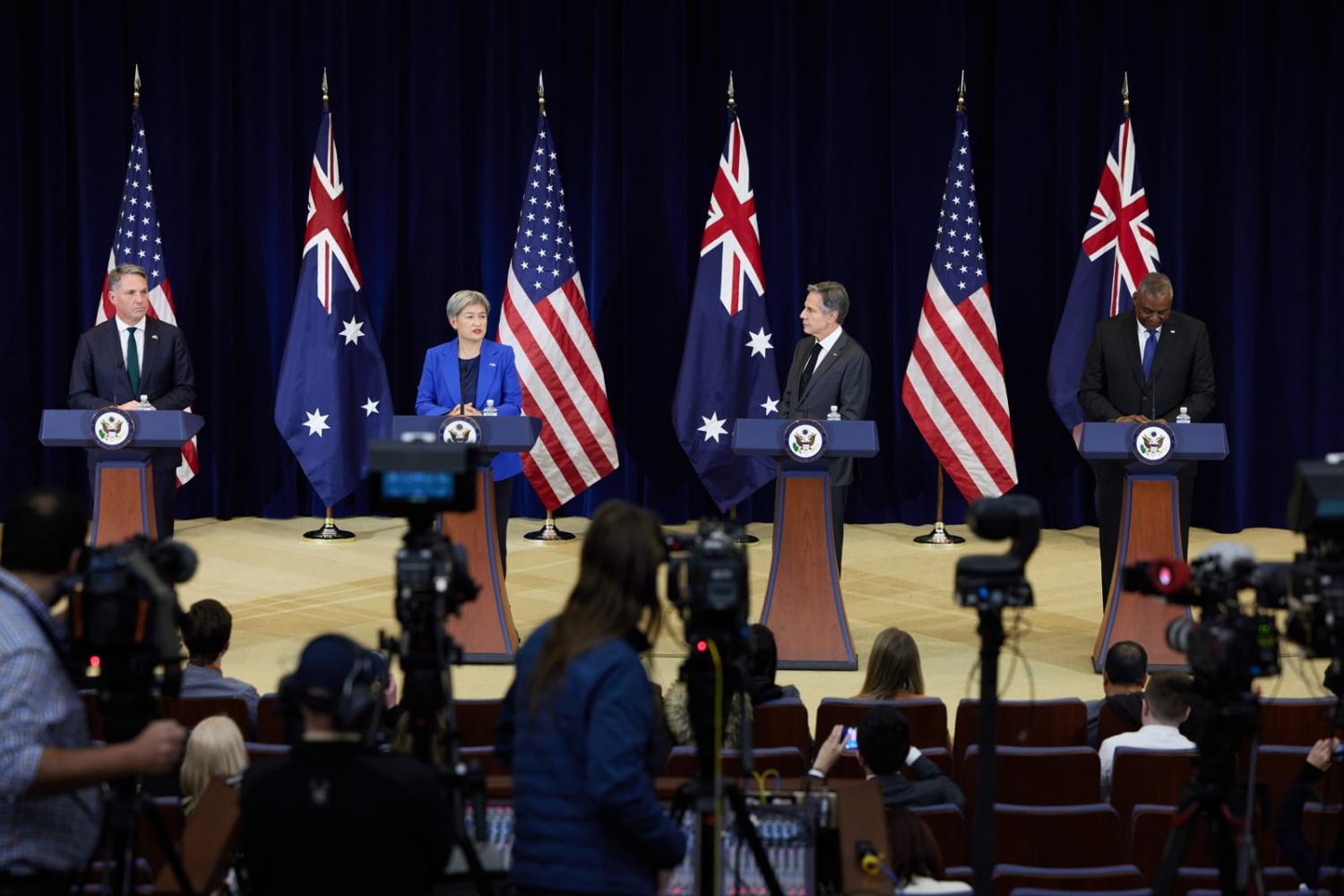When Australia’s foreign and defence ministers look across the table at their US counterparts at the annual AUSMIN talks in Brisbane on Friday, they will be looking at the familiar and reassuring face of American global power. Secretary of State Antony Blinken and Defence Secretary Lloyd Austin represent an administration that continues the post-Second World War American tradition of global leadership reinforced by alliances, military bases around the world, and a navy with global reach.
Maybe “continues” is the wrong term. It might be more accurate to say the Biden administration has restored this tradition, given that Trump tried to overturn it during his term.
Trump was easily the most alliance-sceptic president of the post-war era. For decades, pre-presidency, he campaigned to bring American troops home from foreign countries which, he argued, were exploiting the US taxpayer. And he had no patience for the “Beltway” foreign policy consensus that the United States was an indispensable global leader. The presidential tirade that followed the attempt by his Secretary of State Rex Tillerson and Defence Secretary Jim Mattis to school Trump about the “rules-based order” is evidence of that.
Trump lacked the political skill and resolve to bring American troops home from foreign bases. He also lacked support; many in his administration worked hard to frustrate Trump’s tendencies.
The fear that hangs over so much foreign-policy discourse today is that, where Trump’s first presidency failed, a second will succeed. Trump might have learned how to play the system better, and late in his first term there was evidence that he was getting better at staffing his administration with loyalists.
The surprising thing is how little impact this episode has had on Australian foreign and defence policy. If Australia is hedging against the possibility of a less reliable America, there is no sign of it. Granted, Australia was somehow spared the attention Trump devoted to other “freeloading” allies, but the Morrison government waited only a few months after Trump’s term ended to propose AUKUS, the most ambitious upgrade to the US-Australia alliance since its founding. Since then, the Labor government has embraced AUKUS and announced plans for US bombers and submarines to operate from Australian bases. There are seemingly few thoughts to the possibility that Trump could return.
Even if he doesn’t return, right-wing politics in America is evolving in unsettling ways for allies such as Australia. Even the once iron-cast respect for the US military is corroding on the American right, as Adam Tooze discusses in his latest Substack essay. Thanks to AUKUS, Australia risks becoming mired in a partisan fight that has everything to do with America’s culture wars and very little to do with supplying submarines to Australia.

In the latest issue of Australian Foreign Affairs, Michael J Green offers a corrective. He’s right to say that, in contrast to the impression we get from the discourse, American politics and society have in important respects become more liberal, not more conservative. He’s also right to say that American politics is always tumultuous, and that allies constantly worry about its waning power. The United States has suffered world wars, a depression, numerous recessions, and several debilitating local wars, yet none of it has impeded America’s still-unchallenged ascent to global leadership.
In a new book, The Echidna Strategy, out in late August, I argue that Australia should spend less time worrying about American strength and more time thinking about its resolve. Because everything just argued about America is true of China also – it too faces immense challenges, has suffered massive tragedies, and has made disastrous missteps. Yet it takes an awful lot to knock a nation of China’s size off its trajectory towards becoming the biggest economy in the world. And no nation of that size will be willing to play second fiddle to another great power in its own backyard.
So, the question for Australia is whether the United States has a good enough reason to resist China’s challenge. It had better be a really good reason – existential, even – because the task is immense.
Yet China is not an existential threat to America. Whatever China’s strengths, the United States will remain an incredibly secure country. That’s why Australia’s job, at these AUSMIN talks and beyond, is to nudge the United States away from its insistence on unchallenged strategic leadership in Asia and towards power-sharing with China. That’s a long way from where the Biden administration is right now, but even though it will require some painful compromises, it is the best chance we have of avoiding a confrontation between the two giants.

